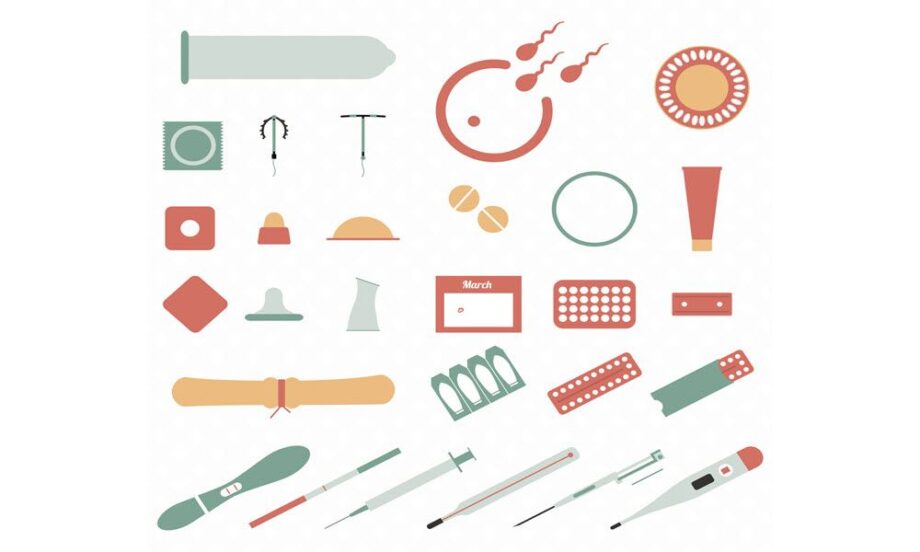All in all, 2016 was an interesting year when it came to contraception research and innovation. We've finally seen some long-term studies that looked at depression and hormonal birth control, a critical look at a current form of permanent birth control, and innovations and research about birth control for men.
Here's a recap of some of the best and most interesting contraception news from 2016, and a few ideas as to what researchers should look at in the future.
No, You're Not Crazy: The Pill Can Make You Depressed
In October, a study published in JAMA Psychiatry made the headlines. Its claim? That the hormonal birth control pill is indeed causing depression in a significant number of women.
Much was made of this study. Many women felt vindicated because they said their symptoms were ignored for years. In many women, the symptoms of depression were so severe that it made them unable to continue with hormonal contraception. Our Facebook and Twitter feeds were filled with women saying how they finally felt heard and believed.
Following the study, Broadly published a fascinating analysis of the sexist and racist history of birth control's side effects. Their premise is that pharmaceutical companies and the medical establishment first tested birth control on women of color, with no care for long-term issues and that following that, they continued to ignore reported symptoms because, meh, they were just coming from women.
Although the study received some criticism surrounding the interpretation of its conclusions, the data concluded that while the link between depression and birth control pills is complicated, it deserves further study.
Essure: Use with Caution
When I considered my options for permanent birth control, I looked at Essure. This method involves implanting a small metal coil in the fallopian tubes. The coil causes the build-up of scar tissue, which should stop eggs from reaching the uterus. Since the implantation of these coils is vaginal, rather than via an incision, it doesn't require full anesthesia.
Being fairly new to the market when I considered it, there wasn't a lot of data about potential long-term issues with this method. However, early in 2016, the FDA released a decision to add stronger warnings to Essure because a large number of women suffered from serious complications including organ perforation, ectopic pregnancies, the development of autoimmune disorders, and severe pain.
Some politicians in Washington continue to call for an outright ban on Essure because of the high incidence of complications. If you are considering permanent birth control in the next few years, make sure to keep an eye out for further research and information concerning Essure so that you can make an informed decision.
Reversible, Non-hormonal Birth Control for Men
Previous attempts to produce hormonal birth control for men were dropped at the trial stage because of side effects that caused men to drop out of the studies. Although the side effects are pretty much the same as those in women (weight gain, mood swings, and others), the researchers considered that “the risks to the study participants outweighed the potential benefits.”
Of course, men can't get pregnant, so why take the risks that many women endure every day to avoid it, am I right?
Yet, early in 2016, the media presented news of a non-hormonal, reversible contraceptive for men called Vasalgel. The method involves injecting a semi-permeable polymer gel in the vas deferens (the tube that guides sperm from the testes to the penis), which blocks spermatozoids from entering ejaculate (the spermatozoids are too big to pass through the gel).
Once the man is ready to have children, he can simply have the gel dissolved with another injection. According to the testing done on rabbits, Vasalgel works right away, and lasts for up to a year.
Although already popular in India, Vasalgel is being tested to according to U.S. specifications, and passed the first round of clinical testing. According to sources, it could be available to the public by 2018.
A product like Vasalgel could increase the number of men who want to have access to more long-lasting forms of birth control, making the responsibility for family planning more equal than it is now.
Hope for Future Research
Scientific research is never done. We must continue to research and gather data on the social and financial benefits of inexpensive and easy access to birth control.
We need more viable male birth control methods including, but not limited to, Vasalgel. Women know that not all birth control works for every woman. This makes birth control for men a necessity.
What kind of research about birth control would you like to see in the coming years? Share your thoughts with us!




